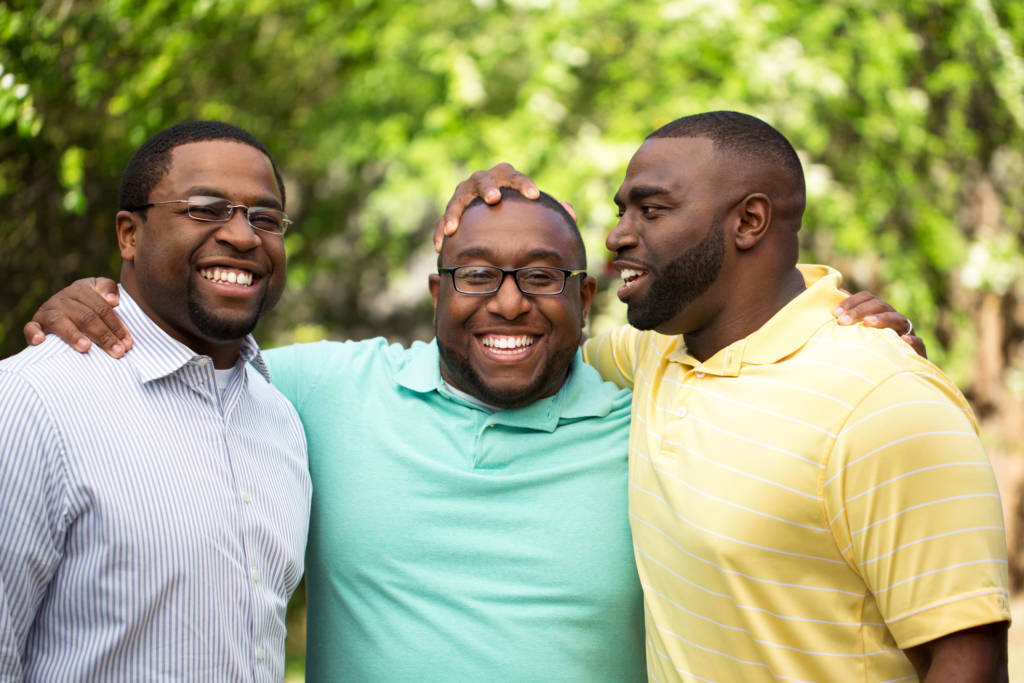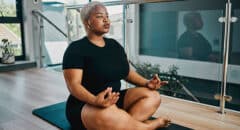 It’s hard getting Black men to go to the doctor. PERIOD. Dr. Michele Reed gave us tips on how to fix that, but now we have another giant we are facing. The fears run deep for many of our brothers, and it’s killing us. The anxiety of being told you have a potentially life-threatening disease is heightened when you also have personal stuff on your chest.
It’s hard getting Black men to go to the doctor. PERIOD. Dr. Michele Reed gave us tips on how to fix that, but now we have another giant we are facing. The fears run deep for many of our brothers, and it’s killing us. The anxiety of being told you have a potentially life-threatening disease is heightened when you also have personal stuff on your chest.
There are some issues that you can’t discuss with your regular doctor, wife, brothers, parents, barber or yourself for that matter. Mental health has been a hot and necessary topic for our community. Black men are starting to wake up and address their mental health as well.
Rappers have spoken candidly about their time in therapy, but what about those brothers who don’t have an album who benefited the same? I got an awesome opportunity to speak with other Black men who tried therapy and here’s what they had to say.
Why did you choose therapy?
McGee: When I was younger my mom took me to therapy after my parents got a divorce. I don't really remember, but she said I used to act out a little bit afterward. I always remember it as a positive experience. It really encouraged me to write out my feelings and process how I felt about things.
I started again recently because a friend of mine passed away suddenly, and I really had a hard time processing it. My feelings tended to be in flux and sometimes I would get teary and upset for no reason. I also had never experienced grieving before and since I was starting my first job, I really needed to get my emotions in check.
Hardy: As a full-time Black man trying to navigate this world and its many challenges, therapy has saved my life. I've been in therapy for a few years, and it has been a revelatory, calming, reassuring journey with lots of growth and insights along the way. I first entered therapy after returning home to Virginia after dealing with then-unnamed depression, anxiety, and suicidal ideations while living and working in Panama.
Jolla: I chose therapy because I had been struggling with certain life issues primarily within the confines of my own mind for years on end, with no true resolution, when I finally decided to go.
Marshall: I made the decision to start going to therapy simply because I want to better understand how my life experiences are affecting my present lifestyle, thoughts, and actions. Even further, I don’t want to carry traumatic stress with me every day, the body remembers the stress and passes it on to descendants. I don’t want to impair my future children with such a burden.
What were your misconceptions about therapy prior to attending?
McGee: It's really funny, I always thought about therapy (of all kinds regardless of why you're there) to be kind where you sit in a chair and talk about your mother or your past. But it's not necessarily like that. it kind of depends onwhy you're there.
Hardy: My misconception going in was that she would be able to look at me and know how many sessions and doses of medication I would need to be better. I was hoping for an easy fix and that doesn't exist.
Jolla: My misconceptions about therapy were few, yet still potentially off-putting. Because I was studying psychology at the time, there were plenty of things that I was well aware of, prior to attending. But one major misconception that I had was that I looked at therapists much like one would lump together doctors who practice & treat physical ailments, to say that any Ear, Nose, & Throat doctor can handle any patient that has Ear, Nose & Throat issues.
That is not necessarily the case with therapists, they are not one-size-fits-all.
Marshall: I shared a lot of the general misconceptions around therapy. Most notably, that to be in therapy means that there is something fundamentally wrong with me and the things I think, feel and believe.
How has therapy benefited you?
McGee: Therapy definitely has helped me express myself to an unbiased third party that can help me process my thoughts. I think sometimes people get lost in their own mind and need an extra person to guide them. For myself, I usually like to keep stuff in (emotional stuff) and it can sometimes hurt me or my relationships with people. This has really taught me about speaking out my problems, and just expressing myself in a healthy way.
Hardy: It showed me that having mental and emotional challenges doesn't make me an ancestor-disappointing scumbag and that it's okay to not be okay. Going through therapy, being open to new perspectives and paradigms, and being patient with myself through transition has helped me significantly over the past few years. Talking openly with my therapist and my community about my experiences and feelings has made thriving with these challenges less shameful and harrowing.
Therapy gave me tools to work through challenges and reframe self-defeating behavior and the way I talk to and about myself. Even though I still struggle, therapy helped me become far more aware of opportunities for improvement.
Jolla: Therapy has benefitted me in a multitude of ways. It has allowed me to better break down & unpack traumatic events in life without taking all of the shame & blame that may be attached. Also, I feel that my ability to be empathetic towards others increased three-fold.
Marshall: One word, mindfulness. I am much more in tune with my self and am now able to process traumatic and stressful moments in a healthy way.
What do you recommend for Black men who are on the fringe about therapy?
McGee: A lot of black men will avoid therapy because they think that it is only for weak or crazy people. Reaching out for help doesn't make you weak. It means you recognize that you want to solve a problem, and you're doing everything you can to do it.
Funny enough, I can even say look tohip-hop for advice. People like Jay Z, Kid Cudi and others who all talk about depression and therapy and how it helped them are really inspirational. They think about their lives and their problems on a whole different level because of it. It's good for you, make the step man.
Jolla: What I recommend for Black men who are on the fringe about therapy is this: determine how much that happiness, a lighter heart & peace of mind mean to you. If it means as much as it should, then consider therapy a necessary step in unlocking more or all of that within yourself. Understand that the journey is very much worth it, even if it’s a long & winding road.
Marshall: Go to a consultation, find a Black Woman Therapist, talk to your homies about it.
What new lifestyle changes have you taken on because of therapy? (Concrete examples of its effectiveness)
McGee: Like I said, I try to be more open with my feelings, specifically with my girlfriend or my family. I think the biggest example probably has to be with my girlfriend. With my ex, I was really bad about telling how I felt and letting problems really sprout up until it became a bigger issue. A small thing would bubble up inside and explode during a bigger argument. It left me feeling shitty. Both of us feeling shitty.
With my current girlfriend, and with therapy, I really am more open with her about how I feel about things. I talk about it with my guy. I know how to approach the discussion. My feelings are more thought out and less at the moment. And problems are solved easily because it's not just a heat of the moment like knee-jerk thing. It's easy to be like, “Hey this has been on my mind I feel kinda like XYZ, I wanna do ABC to solve it”
Jolla: There are a few lifestyle changes that I have taken on & implemented into my day-to-day living. Seemingly simple steps such as remembering to put effort towards breath control during moments of anxiety, as it can considerably lessen the level of stress at the moment.
Also, in further learning & acknowledging my own needs for health & wellness, I have given myself the space for silence. Being quiet during a time where I don’t have to serve any masters, respond to anyone, or take care of anything unless I truly see fit has been a necessary recharge tip.
Marshall: I schedule in time during my week for myself, just to be myself and debrief. Daily debriefs with me, giving myself three glows( good things) and three grows( areas of improvement. Prioritizing my health and wellness, i.e. eating right, attending church, working out, etc.
How often do you go?
McGee: I go once every other week, on Thursday
Jolla: I haven’t gone in some time, mainly due to recently moving & needing to find a better fit, therapist-wise. In trying to find a good match prior to meeting with a therapist, because comfort is very important to me when it comes to the safe space of therapy.
Marshall: I try to go to at least one session a month. I want to go to more but cannot afford it right now.
Thank you to our contributors for all of their insight: Calen McGee, Ronnie Jolla, Julian Marshall and Alexander Hardy. Hopefully, this provides a little more insight into what other brothers have experienced. You never know what can come from one 60 minute consultation.
Call your insurance and find out how much your copay will be for counseling services. I’ve personally gone to therapy for as cheap as $40 each session. Your mental wellness is just as important as your reps in the gym. Until next time, be well, be whole. Peace
Daunte Henderson, founder of the MADEMAN Foundation, author, and educator based in Chicago. You can follow him at @brotherhenderson on IG










